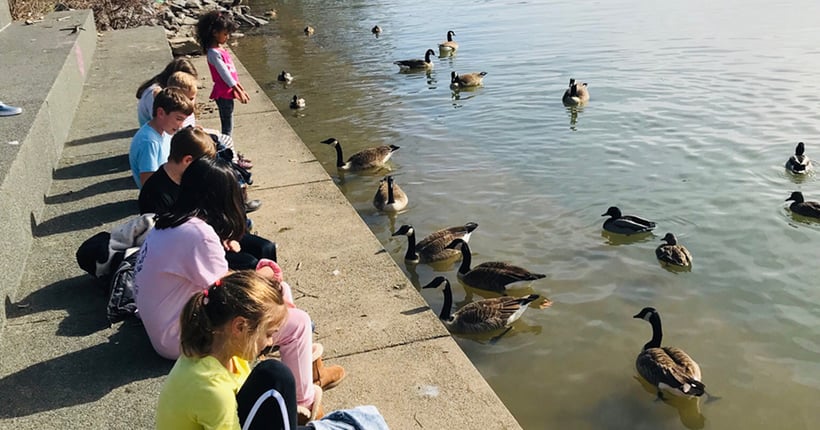
This week the studio reconvened after a relaxing and rejuvenating break, jumping back in with a tough question: what is the difference between effort and motivation? Learners agreed there was a difference, but that effort and motivation often feed into one another. One learner posited that effort involves more of a constant push toward a goal, while motivation centers around passion and excitement for an activity. Another learner added to this idea with an example from sports, saying that effort is important during practice and matches, but that the motivation changes and ramps up when you are facing an opponent and the stakes are higher.
Learners then turned to the question of whether effort or motivation is more important in life. Though most agreed a combination of effort and motivation is necessary to achieve goals, when asked to take a stand and pick the more important of the two, learners were split. Some argued that motivation is more important because it can make you want to put in more effort, while others responded that it’s more important to focus on effort because motivation is sometimes difficult to find for certain activities.
Throughout Quest and Writer’s Workshop this week, learners faced challenges that required consistent effort while also leaving room to find deeper motivation. For instance, on Tuesday learners were tasked with adding to their world cartography factbook as they ventured to Europe. While learners were tasked with researching coordinates, major cities, languages, and political leaders, the country within Europe that they conducted this research about was entirely up to them. Further, if they chose, learners were challenged to dive deeper and research border disputes between their chosen nation and its neighbors. One learner found an article about border disputes having to do with native reindeer populations.
In Writer’s Workshop, learners explored two new types of poetry: the ode and the sonnet. They also researched rhyme schemes, with a focus on monorhyme (AAAA), alternate rhyme (ABAB), enclosed rhyme (ABBA), and couplets (AABB). In writing their odes on Monday, learners had to use an alternate rhyme scheme and complete eight lines of an ode to their chosen topic, while their second ode had to connect in some way to nature, but had no parameters for length or rhyme scheme. One learner chose to create her rhyme scheme combining alternate rhyme with couplets.
During Acton from Home, Quest and Writer’s Workshop have undoubtedly looked and felt a bit different. What haven't been different, though, are the effort with which learners approach challenges and the motivation they find to keep pushing forward. After all, no matter where we are, no matter what quest we’re working on or piece of writing we’re drafting, we only get out what we choose to put in.